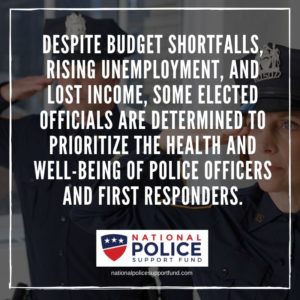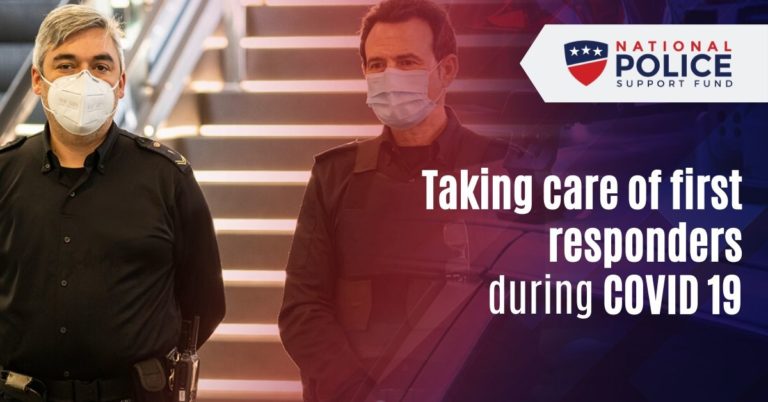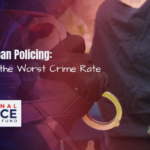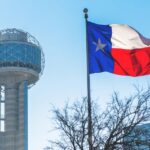As cities and states across the country begin to reopen, the work of police officers and first responders will become even more important to ensure that social distancing and other protocols remain in place for the health and safety of our communities. Taking care of our first responders during COVID-19 must be a high priority.
Thankfully, leaders across the country recognize the tremendous sacrifice that first responders are making and are stepping up to help however they can. Despite budget shortfalls, rising unemployment, and lost income, some elected officials are determined to prioritize the health and well-being of police officers and first responders.
Workers’ Compensation
An emergency rule passed in Missouri last month allows any first responder who is quarantined or comes in contact with COVID-19 to receive workers’ compensation.
Missouri Gov. Mike Parson and Labor and Industrial Relations Annie Hui said the rule rightly classifies virus transmission to first responders as an injury sustained on the job, and therefore eligible for workers’ compensation.
The Fraternal Order of Police applauded this decision and said it would help officers stay home if they are sick to prevent further spread of the virus.
“As police officers, we never know if the next person we encounter will be exposing us to coronavirus, but that will not stop us from responding to calls when a member of the public needs us,” said Jeremy Bowman, Jefferson City police officer and president of Jefferson City Fraternal Order of Police Lodge 19 told the Missourian. “But if we are exposed to this deadly virus, knowing that it will be treated as a duty-related illness will allow peace of mind for our officers and our loving families.”

Wisconsin adopted a similar measure in April and made it retroactive to March 12, the first day of the state’s public health emergency. This means affected workers can collect compensation if they’ve previously been diagnosed with COVID-19.
However, first responders in the state argue that recouping that compensation will be easier said than done because it is difficult to determine how the virus was contracted and prove that a first responder became sick as a result of an interaction on the job.
“It really represents a legislative sleight of hand and doublespeak on the part of anyone who may have been well-intentioned, but the outcome just doesn’t reflect anything that represents a benefit to law enforcement or any other first responder,” Jim Palmer, executive director of the Wisconsin Professional Police Association, told Wisconsin Public Radio.
Hazard Pay
While many people can work from the comfort of their homes, police officers and other first responders do not have that luxury. They are out in their communities every day, keeping people safe and upholding the rule of law. They are what the government deems “essential” workers in every sense of the word.
As such, many cities and municipalities are offering additional compensation during this difficult time in the form of hazard pay. This additional compensation is a small token of appreciation from elected officials for the hard work that first responders do during this difficult time.
Detroit Mayor Mike Duggan approved $800 per month in hazard pay April 10. Detroit is one of the cities that has been hit hardest by COVID-19, particularly among police officers, where at least 20% of officers have been under quarantine.
Lawmakers in other parts of Michigan continue to push for hazard pay to be implemented statewide.
“This is not like anything we’ve ever experienced before in the law enforcement industry,” said Dave Lamontaine, Business Agent for Police Officers Association of Michigan, the largest police union in the state, told WWMT. “This is different because what happens is you take this home with you potentially not just even exposing yourself to the hazards of police work, which you get paid for, you’re taking it home and it’s exposing your family.”
New York is pushing for even more support for first responders, with a proposal to grant up to $25,000 in hazard pay introduced by Senator Chuck Schumer. The proposal would create a “Heroes Fund” that would be open to police officers and first responders, as well as healthcare workers and other essential employees.
New York Gov. Andrew Cuomo supports this effort and has publicly pledged to help figure out a way to pay for a 50% increase for first-line workers despite the state’s budget shortfalls and revenue losses. “They are carrying us through this crisis and the crisis is not over. If you look at who they are and the equity and fairness of what is happening, I think any reasonable person would say we should right this wrong,” Cuomo told ABC7.
After years, if not decades, of staff shortages and decreasing budgets, some places around the country are finally starting to see some light at the end of the tunnel as their workforce and budgets increase. Read about the bright spots in police staffing and funding across the U.S. here.









